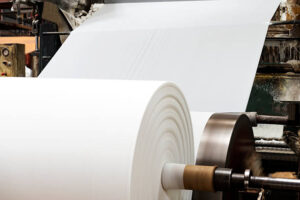Do you intend to launch a brand-new company? Do it right now. Avoid becoming perplexed by the idea of selecting a certain business or industry sector. The finest business concepts to produce money are those that have both advantages and disadvantages. It just comes down to which industry you have the energy and passion to conquer. Your skill set is very important in accomplishing the goal. You should have the self-assurance necessary to put your skills to use and successfully navigate the following hurdles. Let’s also talk about 10 profitable small company concepts you can launch for less Rs 20,000 ideas that you might choose from based on your background and experience.
1.Papad
In India, the thin, crispy food is a typical side dish for the majority of meals, whether it is roasted or fried. Papads are always in demand because they are required at many events, functions, celebrations, and parties.

Once basic ingredients like oil, wheat flour, and spices are available, the manufacturing procedure is rather straightforward.
Although there is fierce competition in the large-scale papad production sector, entrepreneurs can start with a modest investment of between Rs 30,000 and Rs 40,000 and sell to neighbourhood department shops.
To set their products apart from the competition, business owners can experiment with flours manufactured from lentils, chickpeas, rice, tapioca, and other ingredients.
2.Noodles
In India, both rural and urban markets are flooded with noodles, especially the instant version. Simple fundamental ingredients including wheat flour, salt, sugar, starch, spices, vegetable oils, etc. are needed for the noodle production process.

Market vendors offer both fully automatic and semi-automatic noodle makers. Making noodles entails combining the dough, running it through the machine, and blending the flour, starch, and sodium bicarbonate. The noodles are dried, packed, and cut to the correct form and size.
Premium machines can cost upwards of Rs 1.5 lakh, while low capacity ones might cost over Rs 40,000.
3.Disposable mugs and plates
In India, disposable food-grade plates and mugs are frequently used for gatherings, celebrations, picnics, etc. Street merchants and hawkers also make extensive use of them.

The market has developed as a result of its widespread use and lengthy history of low cost manufacturing. They are typically composed of paper, a material that has replaced items like plastic, steel, and glass.
Paper can be purchased at reasonable prices from neighbourhood scrap yards to construct paper plates and cups. The majority of the money is spent on buying equipment that produce disposable plates. They range in price from Rs 50,000 and above, depending on capacity.
4.Jute totes
This “golden fibre” is becoming more and more popular because it is recyclable and biodegradable. A jute bag manufacturing company is a wise investment given the global movement to outlaw plastic.

Making jute bags is an easy process. Numerous bag varieties are available on the market and have a variety of uses.
The modest initial investment needed to launch this business is between Rs. 50,000. You can start up in a modest space of about 500 square feet.
5.Tack pins
In offices, government buildings, educational institutions, and anywhere else where paperwork is involved, staplers are widely used. Without stapler pins, staplers cannot function, and the pins are often made of white galvanised iron wire. The pins will be strong and long-lasting if you use decent iron.

Making staple pins automatically streamlines the production process. The machine generates the pins in predefined lengths by flattening the round iron wire.
Costs for staple pin makers that produce 350 pins per minute might reach Rs 3.5 lakh.
6.Make paper
Making paper is a cheap line of business. Everywhere uses paper. Paper is used everywhere, from businesses and large corporations to schools and colleges. In spite of the world being digital, this results in an endless demand for this commodity.

Small copies and A2, A3, and A4 sheets are only some of the paper products that have a huge potential for growth. To prevent high transportation costs, you must choose the manufacturing location carefully.
For setting up the machinery and purchasing the raw materials necessary to launch the business, you would require between Rs. 2 lakh to Rs. 2.5 lakh.
7.Natural soap
If you want to establish a small business, one extremely niche industry to target is organic soaps. It is a highly sought-after substance that many people use every day. You need basic materials like glycerine, herbs, essential oils, moulds, a microwave, and more to start a modest herbal soap business.

For scaled production, an investment of roughly Rs 1.5 lakh to Rs 2 lakh is needed.
Both starting the business at home and renting a small facility are options. If you want to learn how to make soap, you can choose from a variety of government courses.
8.Tempered glass for mobile devices
Despite a declining global market for smartphones, India’s market is expanding. According to International Data Corporation, 32 million units were shipped to the Indian market in the first quarter of 2019. (IDC). Tempered glass for smartphones and other accessories are also very popular. These are produced in high-temperature equipment that rapidly cools hot glass.

The tempered glass must also pass tests for hardness, breaking resistance, and dimension accuracy. Additionally, silicon, extra protection, and glue are included in the tempered glass. The adhesive is a crucial part of manufacturing since it guarantees that the tempered glass will adhere to the smartphone screen.
High capacity machines cost around Rs 1.5 lakh, while low capacity ones cost around Rs 75,000.
9.Files and envelopes
Despite the shift to digital communication, paper files and envelopes are still in high demand in schools, colleges, businesses, etc. Depending on the needs of the purchasers, various types of paper can be utilised, such as scrap paper or maplitho paper. Gum and adhesive also need to be obtained from the market.
Costs for envelope-making equipment range from Rs 1.5 lakh to Rs 11 lakh.
Paper is cut to precise sizes as it is fed into these machines. The envelope is dried once the gum has been applied, then packaged. Department stores, supermarkets, as well as businesses including schools, colleges, and corporations, may sell these products.
10.Plastic bags
As people are becoming more non-biodegradable, non-biodegradable plastic bags made of paper-based eco-friendly paper-based eco-conscious consumerss non-biodegradable, non-biodegradable, non-biodegradable plastic Paper bags can be used to pack a variety of objects, including jewellery, food, medicine, and shopping items. Making paper bags is a low-investment business that may be started small.

Automatic paper bag-making equipment has a high production rate of a few thousand units per hour and starts at roughly Rs 5 lakh. Although they require more labour and human labour, semi-automatic devices are also available for less than Rs 3 lakh.
Additionally, business owners must spend money locating raw materials like paper sheets, ink, printing supplies, tags, etc.






